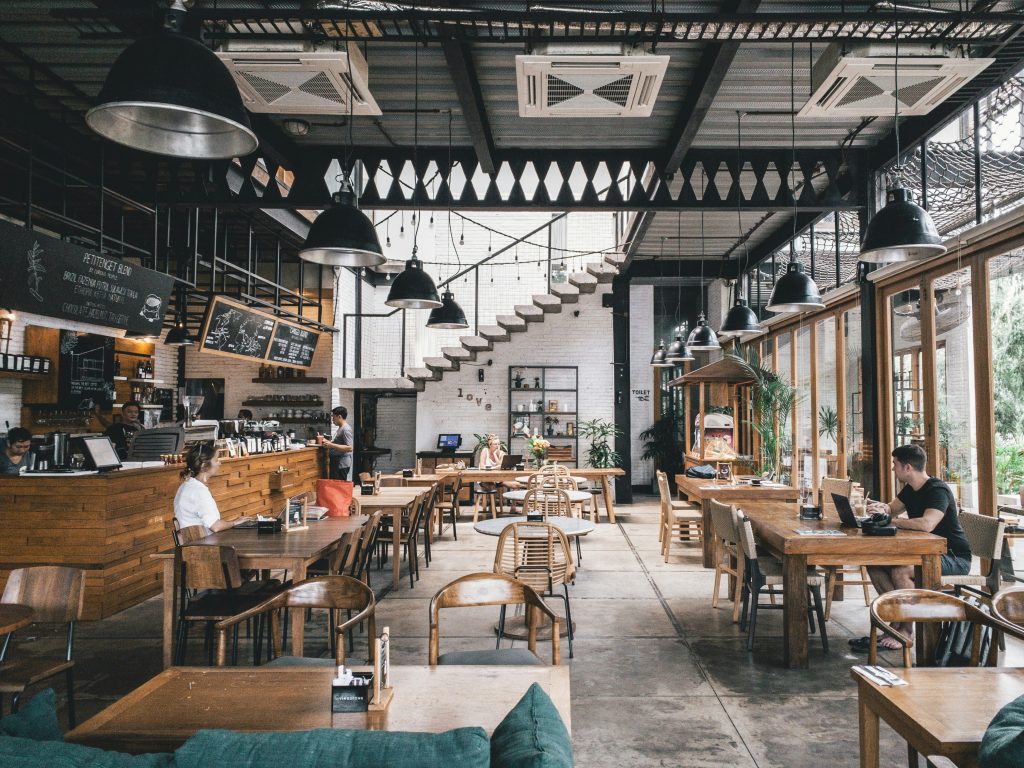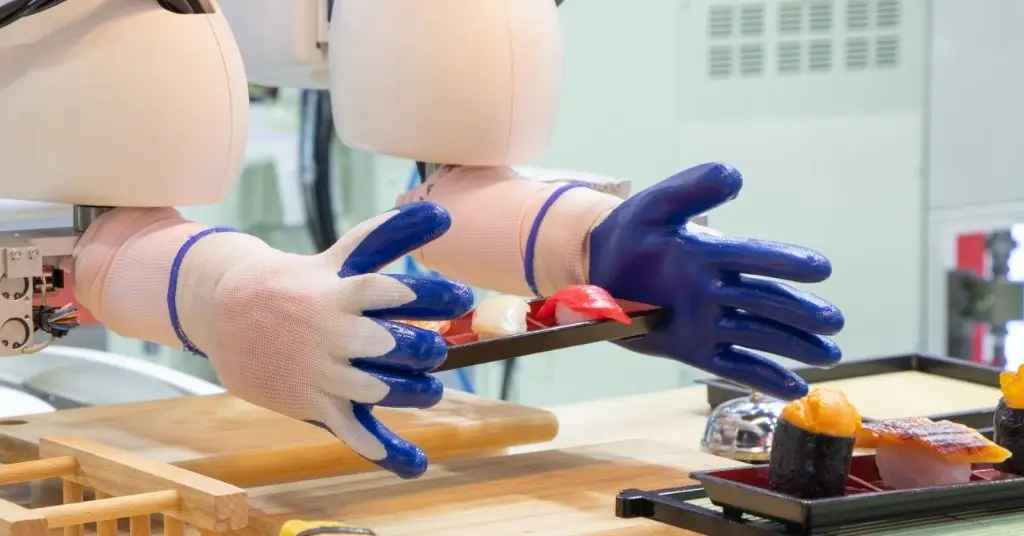In today’s fast-paced U.S. market, convenience is king. Automated and grab-and-go restaurant formats are reimagining how people dine—offering speed, safety, and streamlined experiences that align perfectly with modern lifestyles. For restaurant owners and guests alike, these models present both promising opportunities and critical considerations.
1. What’s Driving the Rise of Automated & Grab-and-Go Formats?
Speed & Efficiency: Consumers crave quick transactions during peak hours. Automating ordering and payment dramatically cuts wait times.
Labor Optimization: With tight staffing landscapes, automation enables businesses to reallocate staff from routine tasks to enhancing guest service or boosting kitchen productivity.
Hygiene & Safety: Touchless interactions—from NFC-powered payments to temperature-checking kiosks—enhance guest confidence, especially post-pandemic.
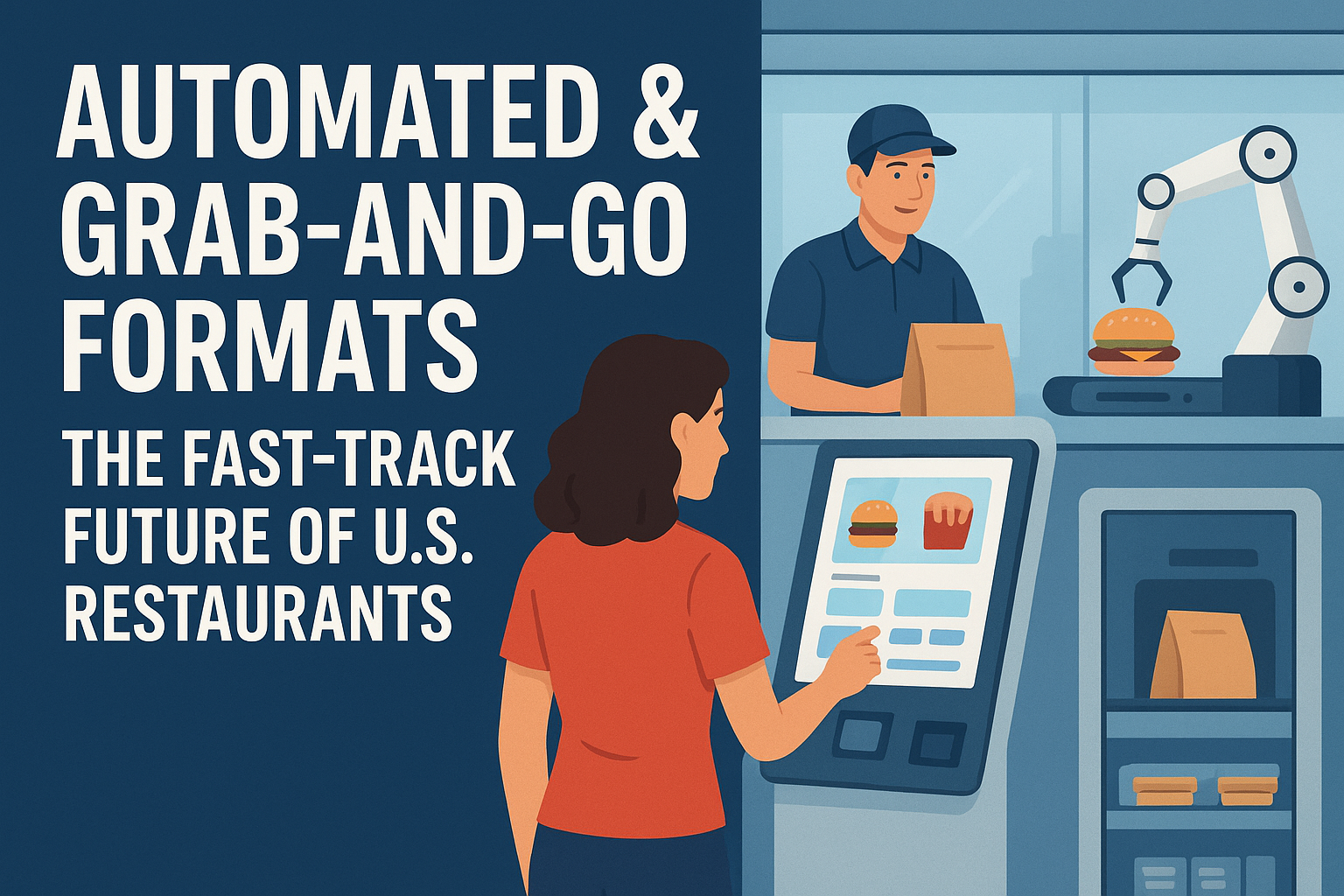
2. Real-Life Examples & Innovative Formats
Urban Micro-Restaurants & Micro-Market Booths: Compact, fully automated counters nestled in transit hubs or offices deliver gourmet sandwiches, salads, and beverages in under a minute.
Smart Lockers & Prepaid Pickups: Digital lockers allow guests to collect their orders without human contact—perfect for campus dining or bustling city centers.
Self-Service Kiosks & Digital Walls: From upscale burger chains to local cafés, touch-screen menus let patrons customize, pay, and go—minimizing errors and increasing average check size.
Robotics & Vending Hybrids: Some models, like robotic baristas or burger bots, prepare orders entirely on-site, offering novelty plus speed.
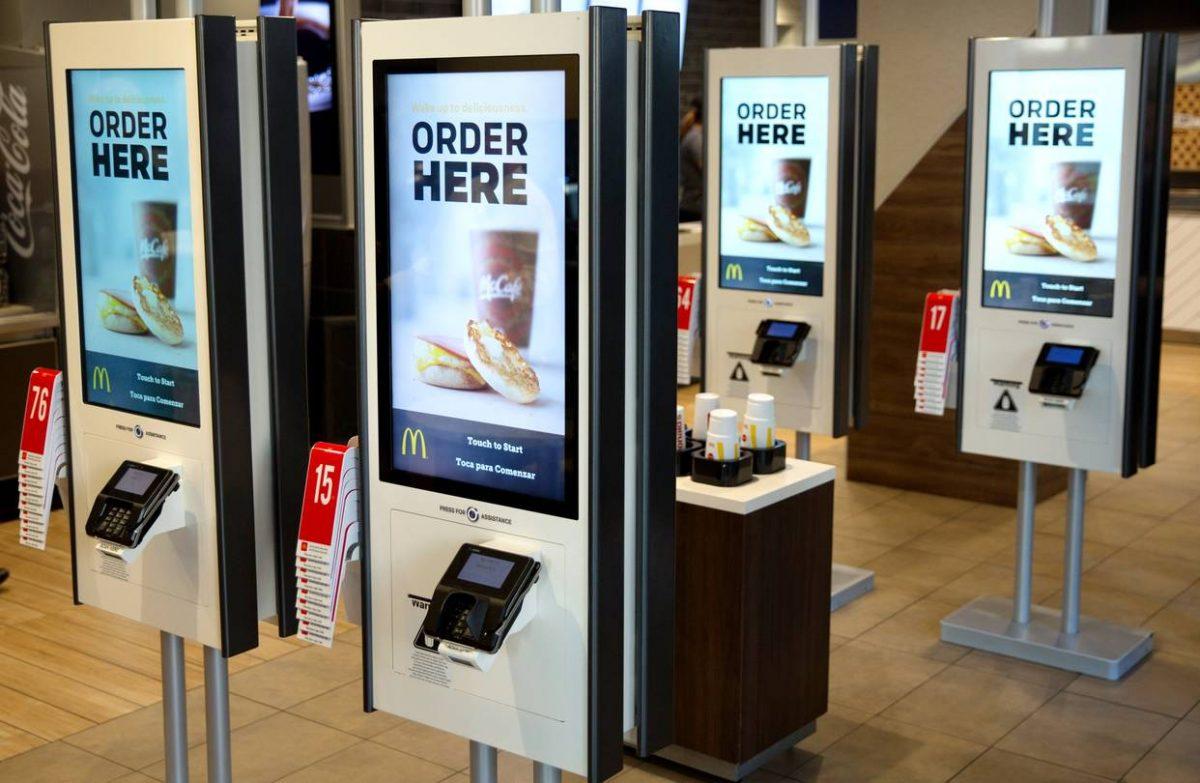
3. Business Impacts: Pros & Pitfalls
| Opportunity | Benefit for Business |
|---|---|
| Reduced labor & overhead | Lower long-term costs; leaner staff use |
| Enhanced customer throughput | More transactions during peak hours |
| Built-in analytics | Data-driven upselling and menu tweaking |
| Novelty factor | Buzz-driving, social media-worthy |
Potential Challenges
Upfront Costs: Kiosks, lockers, and automation tech often entail high capital investment.
Digital Frustrations: Clunky interfaces frustrate users—especially older customers.
System Integration: Seamless syncing with POS, loyalty programs, and inventory tools is a must.
Maintenance: Machines break—support systems must be in place to ensure uptime.
4. Implementation Roadmap for Restaurant Owners
Pilot First
Start small—a kiosk at a single location or a smart locker trial—to test guest reception and ROI.Choose Guest-Friendly Tech
Prioritize intuitive UX. Fast workflows with clear prompts and accessible support are key.Integrate Seamlessly
Ensure the new setup syncs with your POS, loyalty, CRM, and inventory systems—this avoids headaches later.Promote & Educate
Showcase the convenience affordably: signage, mobile app banners, or social media posts explaining how to use the system.Train Your Team
Though automation reduces manual touchpoints, staff still need to troubleshoot, guide confused patrons, or respond when tech falters.Measure & Iterate
Track KPIs: transaction counts, avg. ticket, usage rate, guest satisfaction… then refine the tech or UX accordingly.
5. Guest-Side Benefits: Why Visitors Love This
Faster Service: No waiting in line means better time management for diners on the go.
Customization & Control: Digital menus often include richer visuals and modifiers than paper menus—guests can easily tailor orders.
Contactless Convenience: Pay via Apple Pay, Google Wallet, or NFC—quick, clean, and secure.
24/7 Access: Automated formats can extend operating hours or facilitate orders even off-peak.
6. Key Takeaways & Tactical Checklist
Top Tactics in Action
Install a self-order kiosk: Opt for secure payment gateways and intuitive design.
Deploy smart locker collection zones: Great for campuses, malls, or shared buildings.
Offer “order ahead, pick up at the machine” via mobile apps.
Use data from automation to dynamically update menus, nudge upsells, or drive promotions during slow hours.
Quick Checklist for Owners
Validate guest demand for rapid self-service at your location
Assess compatible vendors for kiosks, lockers, or micro-booths
Plan for backend integration and feasible payment systems
Develop a training refresher for staff
Launch, monitor KPIs, and continuously refine
Final Thoughts
Automated and grab-and-go formats represent a fast-growing frontier in the U.S. restaurant industry—blending technology with convenience to meet evolving consumer needs. When implemented thoughtfully, they don’t just streamline operations—they also deliver delight, drive revenue, and future-proof your business.

